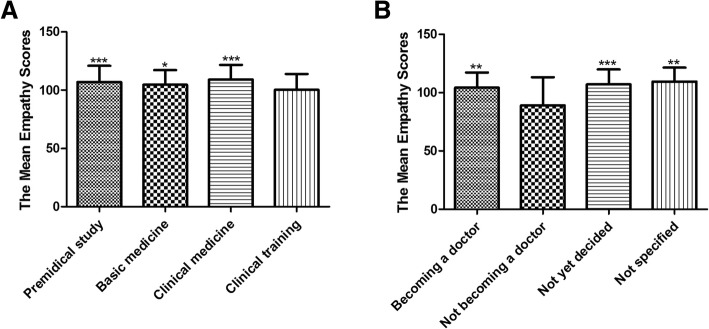Fig. 1.
The differences in empathy mean scores in terms of categorized stages and future career preference. a: Empathy trends in educational stages were examined using ANOVA. Premedical study comprises two years of general education during school years 1 and 2 (n = 111). Basic medicine comprises two years of basic medicine study during school years 3 and 4 (n = 131). Clinical medicine comprises one year of clinical medicine study in school year 5 (n = 46). Clinical training comprises two years of internship and clinical rotations during school years 6 and 7 (n = 154). We found statistically significant associations between changes in empathy scores and educational stages (p = .001). There was a difference in JSE-S scores between students in clinical training and premedical study, between those in clinical training and basic medicine, and between those in clinical training and clinical medicine.* p < .05, *** p < .001 compared to the clinical training. b: We analyzed the empathy mean scores in future career preference using ANOVA. There are three options for future career preference: becoming a doctor (n = 380), not becoming a doctor (n = 11), and not yet decided (n = 37). Participants who did not specify their preference were included as a fourth option: not specified (n = 14). Statistically significant differences in the empathy mean scores were found by future career preference (p = .001). Students who preferred not to become doctors had lower empathy than those who did prefer to become doctors, those who were undecided, and those did not specify.** p < .01, *** p < .001 compared to not becoming a doctor

